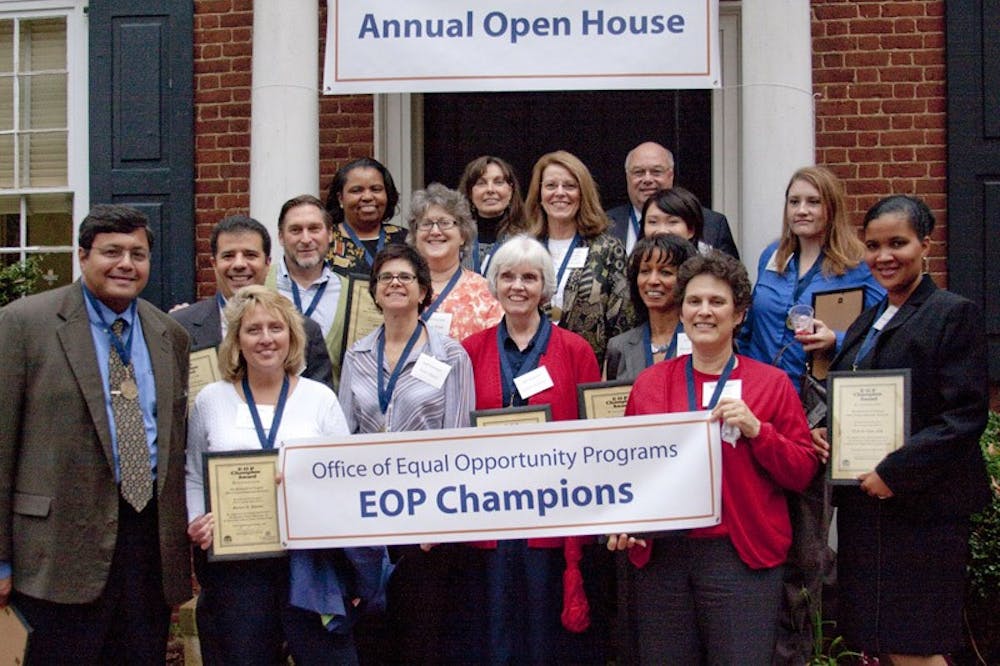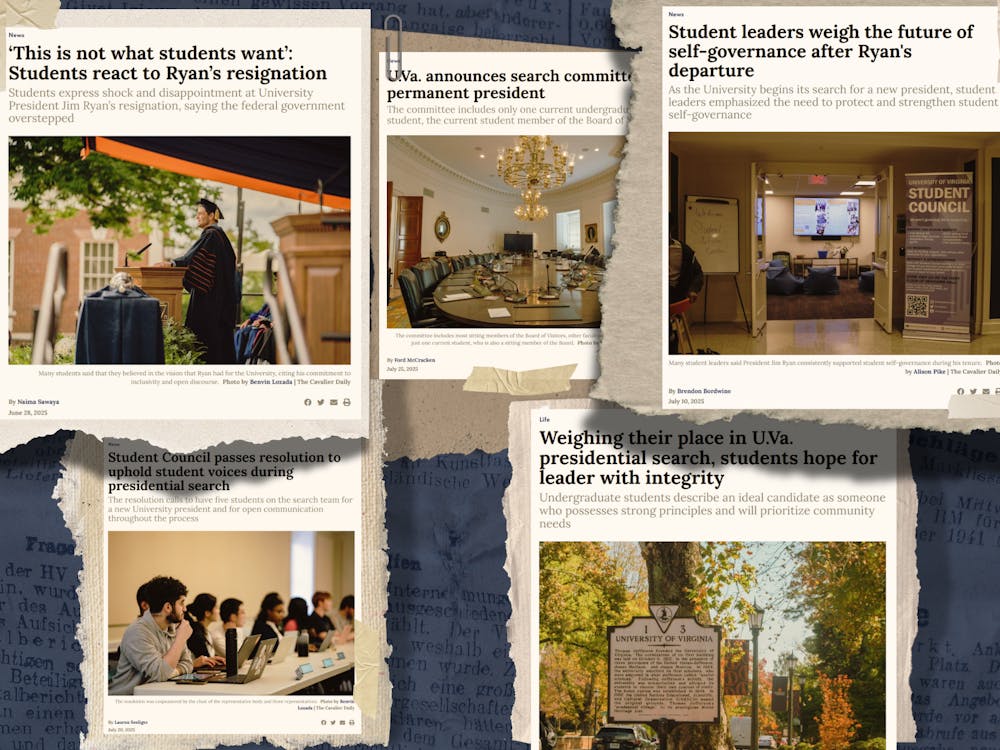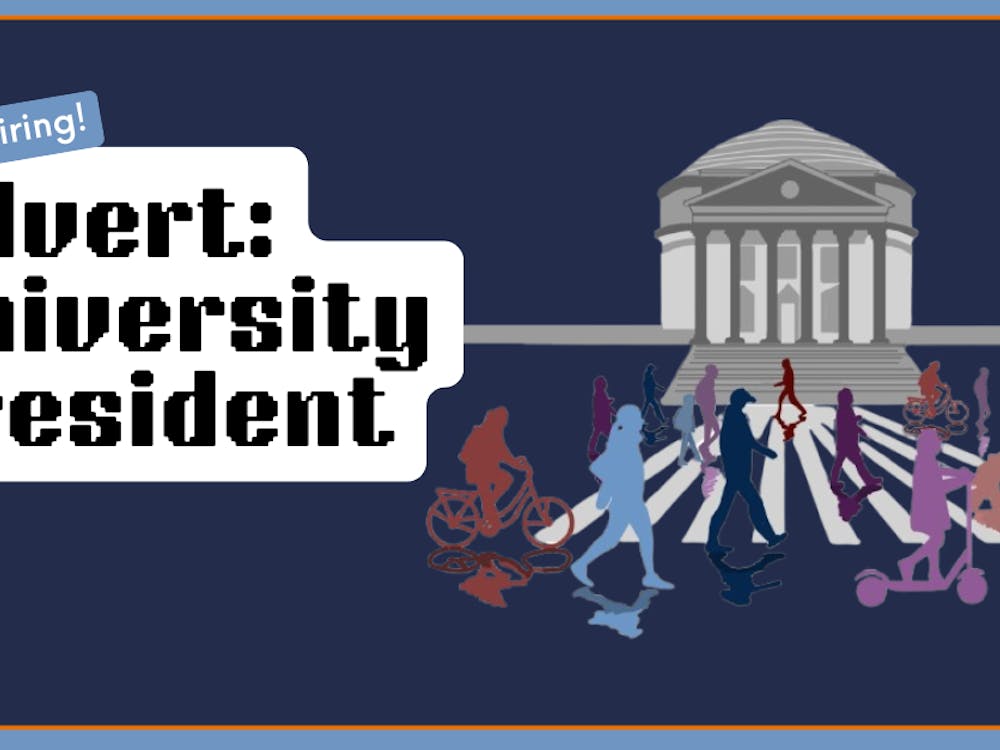The University's Equal Opportunity Programs Office recently presented its inaugural Champion Awards to 17 University community members, recognizing individuals' efforts to foster a more inclusive environment on Grounds.
"The awards are a way to acknowledge and honor persons at the University who promote social justice and equal rights," Equal Opportunity Programs Director Darlene Scott-Scurry said.
The ceremony, which took place last Friday, recognized those who "work to advocate and help us advance our mission, which is preventing and eliminating discrimination and providing equal access to all University programs and activities," Scott-Scurry said.
History Prof. Brian Balogh, who received one of the awards, served on President John T. Casteen, III's commission for diversity and equity and co-chaired one of its major subcommittees, through which he and the committee's members worked to develop ideas about community engagement, he said.
Balogh said he was honored to receive the award but added that it also made him feel "a little sheepish," because he is not sure how to feel about being singled out.
"On the other hand, I'm glad that the University is recognizing folks who are leaders in this area," Balogh said. "I don't know if I really deserve to be among that group, but I do think it's important that all the members of the University community help out in different ways."
Astronomy Department Administrative Supervisor Barbara Johnson received her Champion Award as a result of her positive treatment of an employee with invisible disabilities and her efforts to include her in the workplace, Johnson said.
"She basically wanted to express her appreciation for making her feel like an equal and valued employee," Johnson said. "I greatly appreciate her recognition."
To select the award recipients, the EOP reviewed nominations explaining why particular community members should be honored, Scott-Scurry said. The office looked for University members who create an inclusive work environment free from discrimination, are committed to the principles of equal opportunity and are willing to speak up if they witness cases of inequality, according to the office's Web site.
The pool of recipients was also "very inclusive," Scott-Scurry said, including faculty, staff and administrators.







